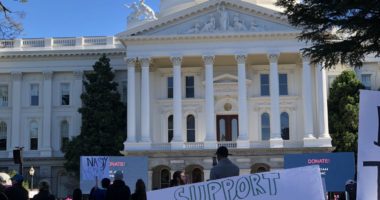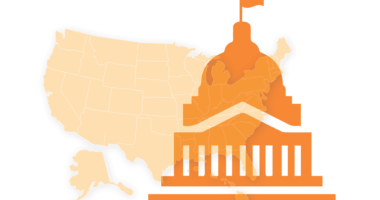Statement from The Education Trust on Pell provisions of the FY12 House Appropriations Bill
WASHINGTON (December 15, 2011) The news from Capitol Hill today is disappointing. When presented with tough choices in negotiating this years federal spending bill as filed last night the U.S. House of Representatives took the low road, making cuts to the Federal Pell Grant Program that will hit some of Americas most disadvantaged college students the hardest.
Rather than find cost savings in other places for example, trimming higher education tax credits for families with six-figure incomes they chose to dim the promise of college opportunity for many low-income and working-class students who are trying to earn their way into the middle class. Thats not just unfair; its economically dangerous.
A recent study from Georgetown University found that the U.S. economy is going to be short about 3 million college-educated workers by 2018. And as tuition rates skyrocket increasing nearly twice as fast as healthcare costs and more than four times faster than inflation Americas low- and moderate-income college students are struggling to keep up. Last year, student loans surpassed credit cards as our nations top source of personal debt.
So it should come as no surprise that, in this country, youre 10 times more likely to have a bachelors degree by age 24 if your parents are wealthy than if they are poor. To become the nation that we hope to be, and to get our economy to where it needs to be, we must widen pathways to college degrees, not narrow them. But by changing Pells eligibility criteria, the 2012 spending proposal does exactly that.
The new bill reduces the number of semesters that a student can qualify for support, and adds additional paperwork to the application process for some low-income students. These changes to the Pell program erect new barriers to opportunity and prosperity, particularly for many first-generation college aspirants who are working to break the cycle of poverty. Thats harmful not just to them, but to our struggling economy as well.
As damaging as this proposal is, it could have been far worse. The original spending plan passed by the House earlier this year would have booted more than half a million students out of the Pell program in the next few months. It called for punishing changes to the programs income protection regulations, changes that would have had a seismic impact on the millions of Pell recipients who are working their way through school. It also would have reduced grants for those who rely on Social Security or other benefits to make ends meet
Those of us whove been afforded the kind of education that allowed us to participate in the debate over Pell funding may find comfort in knowing the bill is not as bad as it might have been. But the students who will be hurt by the changes being made to the program today will know no such comfort.
# # #







